Breaking the chain of foodborne illnesses through education
September 13, 2016
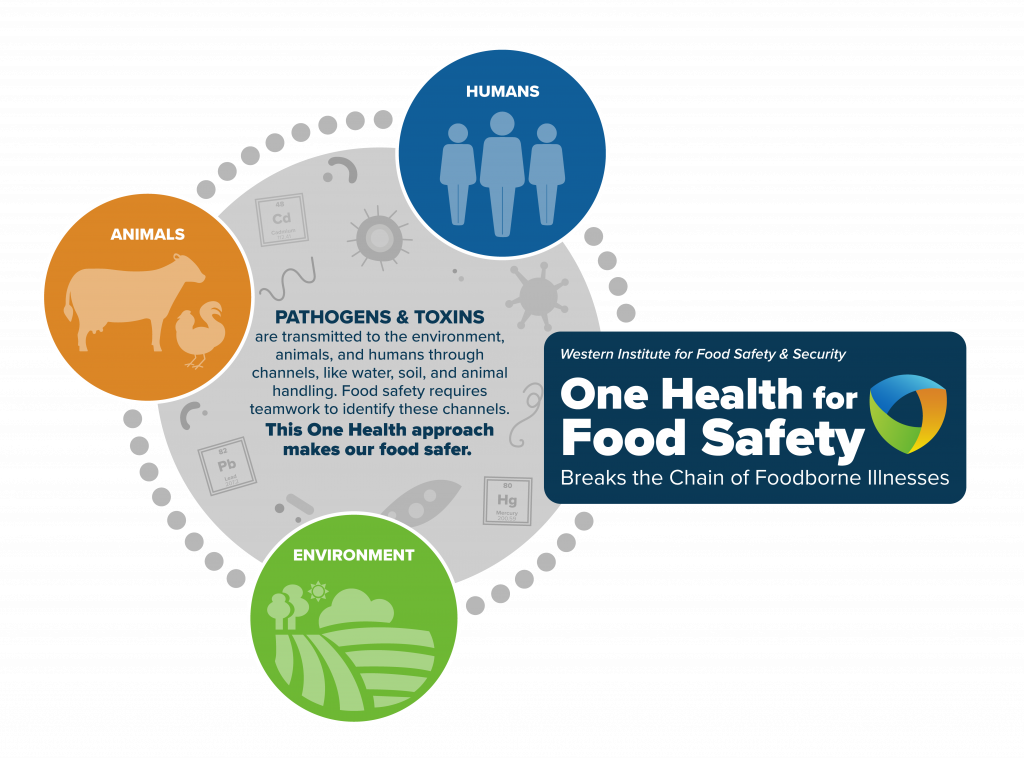
The freshness of a candied walnut, pear, and leafy green salad is tantalizing, but if the
dinner conversation turns to the symptoms of foodborne illness and the recent multistate listeriosis outbreak that led to the death of one person, you might suddenly have a loss of appetite as the fork reaches your mouth.
If you speak to a Millennial in China they would explain that it is general knowledge, taught from birth, that what you put in your mouth is the cause of disease. In fact more than two thousand years ago a common proverb by philosopher Fu Xuan was, “Illness can be caused by food goes into the mouth, while harm can be caused by words come out of the mouth.”
The symptoms of foodborne illness are often misdiagnosed as flu. Harmful bacteria or other pathogens from food are not recognized as the cause. The CDC reports there are 3,000 deaths in the U.S. each year due to foodborne illness. For those cases that do get reported, it’s estimated that 48 million illnesses occur each year in the U.S.
The World Health Organization reports that 125,000 children die annually from a foodborne disease. According to the WHO, 1 in 10 people worldwide get sick each year from eating contaminated food and as a result 420,000 die. Children account for one-third of those deaths.
The Western Institute for Food Safety and Security, (WIFSS), is educating and training the workforce that will improve global food safety and defense in all sectors of the food system continuum from environment to consumer.
Through the One Health for Food Safety conferences sponsored by WIFSS, students and faculty from Nanjing Agricultural University, (NAU), Jiangsu Agri-Animal Husbandry Vocational College, (JSAHVC), and other vocational colleges throughout China, learn that food safety requires teamwork to identify the channels, such as water, soil and animal handling, in which pathogens and toxins are transmitted to the environment, animals and
humans.
Director of Outreach and Training at WIFSS, Dr. Bennie Osburn, feels strongly that, “These students and faculty will make a difference for all of humanity, and are committed to delivering the concept of One Health to address food safety in Asia.”
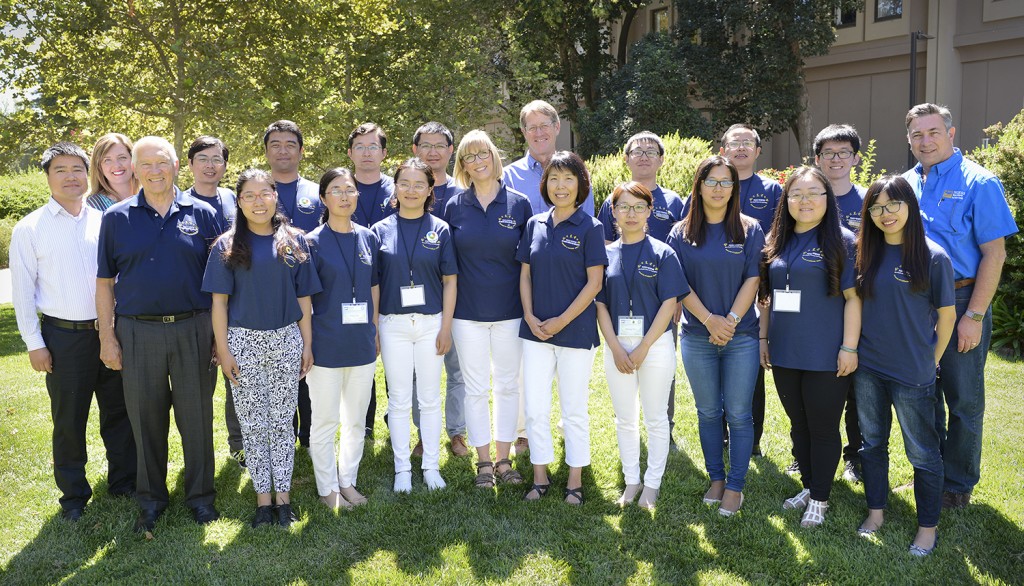
Eleven faculty members from agricultural vocational colleges throughout China pose for photos and receive certificates after completing a 4-week conference sponsored by the Western Institute for Food Safety and Security at the University of California School of Veterinary Medicine. Photo by Don Preisler/UCDavis © 2016 UC Regents
Summer Conference
The One Health for Food Safety Conference, held at UC Davis, June 27 through July 22, was an intense 4-week session with lectures and tours of eight laboratories in the School of Veterinary Medicine and the College of Agricultural and Environmental Sciences, and two community college campuses.
Faculty from four Chinese agricultural vocational colleges identified areas of risk along the food chain through hands-on learning experiences that included a tour of a composting facility. Fertilizer can be used for leafy greens and the composting methods used by the facility assure that their soil amendments meet the standard for a safe product.
Three-Fold Mission
The threefold mission of the conferences is to:
- Raise awareness
- Encourage team building
- Bring about change through calls to action
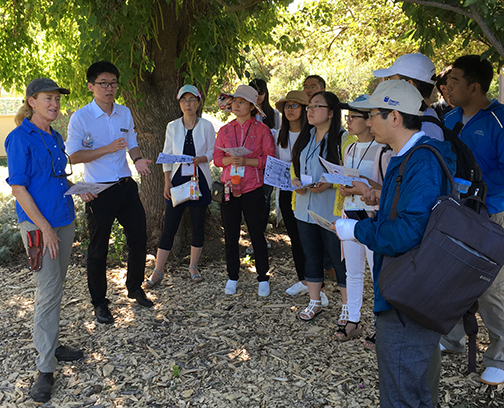
Carol Hillhouse at the UC Davis Student Farm teaches about sustainable agriculture and food systems. Photo by Chris Brunner/WIFSS
Awareness
Understanding the One Health concept which is an interdisciplinary approach to solving specific, complex problems that arise at the interface of animals, humans and the environment helps connect the dots between One Health and food safety. Awareness of the concept makes it clear that this approach is valuable to tackling serious foodborne illness problems affecting the world’s population.
A safe global food chain will be the result of solving the food safety concerns and building strong preventive food safety systems in countries throughout the world.
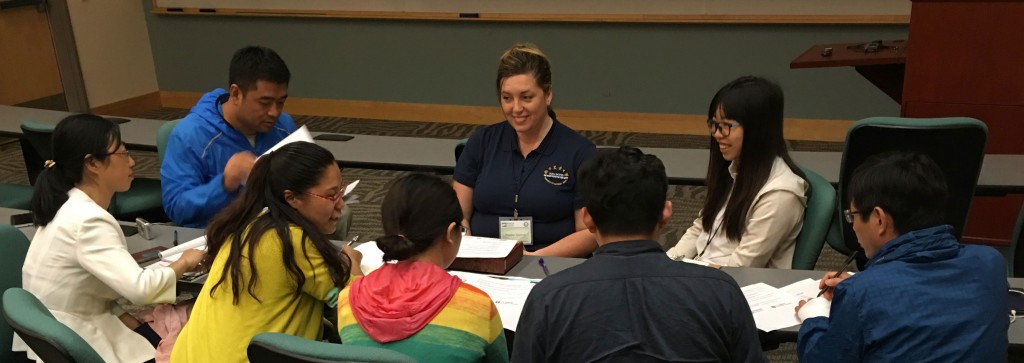
Heather Johnson, an instructional systems designer at WIFSS, (center), joins in a group discussion session at the conference, with vocational faculty from China. Photo by Chris Brunner/WIFSS
Team Building
Team building is encouraged during the conferences through collaborative group projects where problem solving skills are put to the test. Final-day group presentations identify the area of greatest risk, the cause of the disease, and the strategy for prevention of emergence of these diseases in the future.
It takes teamwork to monitor the agricultural, animal and environmental food systems for potential hazardous contamination of products critical for the improved health of animals, the environment and people.
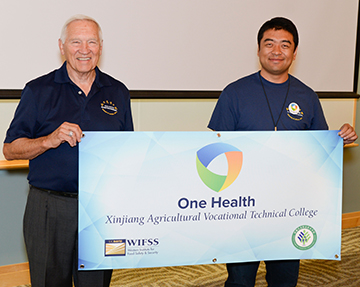
Bennie Osburn presents Professor Ma Wengpeng with One Health banner for Xinjiang Agricultural Vocation Technical College. Photo by Don Preisler/UCDavis © 2016 UC Regents
Action
At the conclusion of a conference participants are challenged to consider something they can do to help improve the food safety or environmental problem which they identified in their group discussions.
Students attending the 2015 winter conference returned to NAU and established a One Health Club. The founding president described it as going home and planting a seed and now it’s going to be a tree. In the spring of 2016 the NAU One Health Club conducted their first video conference with the Students for One Health Club with the School of Veterinary Medicine at UC Davis.
One Health Clubs are underway throughout China as a result of the conferences. Chengdu Agricultural College, Xinjiang Agricultural Vocational Technical College, Xuzhou Vocational College of Bioengineering, and Jiangsu Agri-Animal Husbandry Vocational College now have One Health Clubs. WeChat conference calls with WIFSS team members provide club members the opportunity to make plans for moving forward to implement their activities in connection with other clubs in China and at UC Davis.
By improving food safety from soil to table we will be on our way to a safer global food supply and the reduction of foodborne illnesses that cause disease and death. In the future, sitting down to enjoy a candied walnut, pear, and leafy green salad will no longer be cause for alarm.
